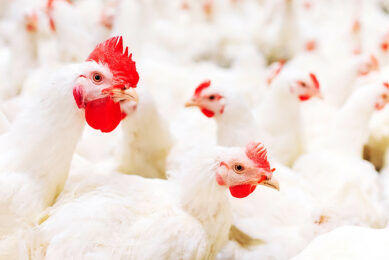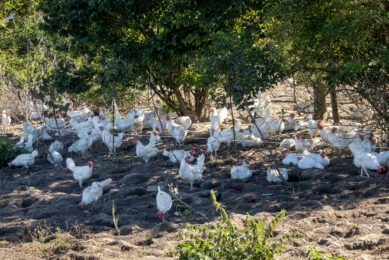Environment benefits from phytase
Millions of chickens in Delaware have been on a diet with aim of reducing their impact on the environment and improving the health of the state’s waterways.
Research led by William Saylor, a professor of animal and food sciences at
the University of Delaware, has confirmed that the chickens in the area are now
digesting more of the phosphorus, an essential nutrient, in their feed, due to
the addition of phytase, a natural enzyme. This has resulted in 23% less
phosphorous in chicken manure.
Less P in
litter
Poultry litter is often used to fertilise farm fields. But
now, much less phosphorous is present in the litter and therefore much less
phosphorous is being absorbed into the ground. This is good news for the
waterways. Overloads of nutrients, particularly phosphorus and nitrogen, have
contributed to serious water-quality problems, such as massive blooms of algae
and fish kills.
P reduction
In 2006, Delaware farmers
produced over 269 million broiler chickens, according to the Delmarva Poultry
Industry. This translates into 280,000 tonnes of waste. And, according to recent
analyses by David Hansen, a UD assistant professor of soil and environmental
quality, there is now about 19 pounds of phosphorus in a tonne of Delaware
poultry litter. This compares with 25-30 pounds of phosphorus per tonne of
litter just five years ago. The 30-40% reduction is credited to phytase-modified
diets and other nutrient management practices adopted by poultry farmers under
Delaware’s
Nutrient Management Law of 1999. That reduction means that the phosphorus
load to the environment has been reduced by some 2-3 million pounds per
year.
Related links:
University of Delaware
Delmarva Poultry
Industry











